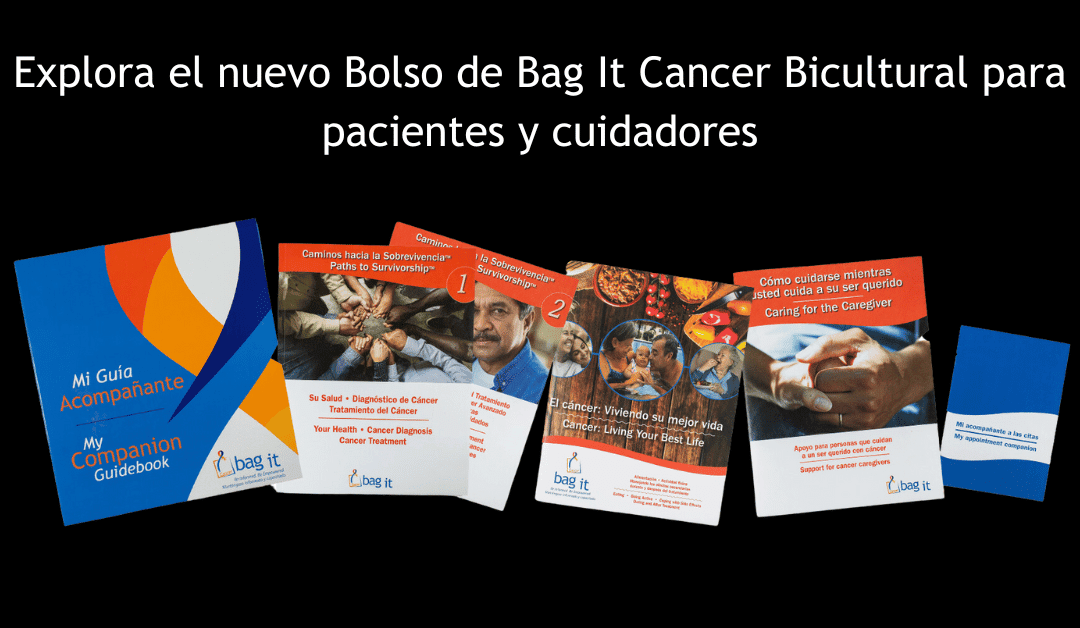
by Bag It Team | Apr 10, 2024 | Educational Articles
Diseñado específicamente para la comunidad Latina y sus familias que enfrentan cáncer, este Bolso es el resultado de dos décadas de experiencia y colaboración para mejorar el contenido del Bolso Bag It original en español.
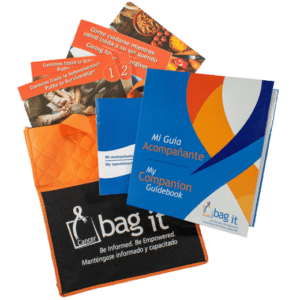 Reconociendo la profunda influencia de las creencias y los valores culturales durante el trayecto del cáncer, trabajamos estrechamente con miembros de la comunidad Latina que han tenido su propia experiencia con el cáncer: los sobrevivientes, los cuidadores, los proveedores de atención médica y otras personas que atienden a personas con cáncer. ¿El resultado? Un recurso único disponible tanto en español como en inglés, diseñado para cumplir con las necesidades de esta comunidad.
Reconociendo la profunda influencia de las creencias y los valores culturales durante el trayecto del cáncer, trabajamos estrechamente con miembros de la comunidad Latina que han tenido su propia experiencia con el cáncer: los sobrevivientes, los cuidadores, los proveedores de atención médica y otras personas que atienden a personas con cáncer. ¿El resultado? Un recurso único disponible tanto en español como en inglés, diseñado para cumplir con las necesidades de esta comunidad.
El Bolso Bicultural en Español le da prioridad a la participación familiar, reconociendo el importante papel que desempeñan las familias en las decisiones de tratamiento y cuidado. También se incluyen las necesidades de los niños, con orientación específica sobre cómo apoyarlos a través de una comunicación y comprensión apropiadas para su edad. Profundiza en cómo un diagnóstico de cáncer impacta la dinámica familiar, ofreciendo apoyo tanto a los pacientes como a quienes los rodean.
El Bolso Bag It sobresalta la importancia de mantener su atención médica preventiva y sus exámenes de detección del cáncer con regularidad. Analiza conceptos erróneos comunes sobre el cáncer, y al mismo tiempo proporciona información objetiva y confiable sobre los fundamentos del cáncer con el propósito de empoderar a las personas mientras navegan las aguas de su propia experiencia con el cáncer.
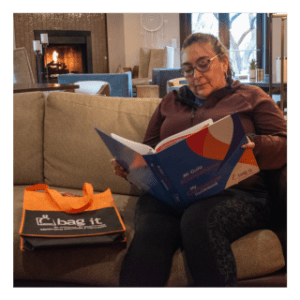 La comunicación efectiva es clave, por lo que el Bolso ofrece consejos y estrategias prácticas para fomentar el diálogo entre familiares y profesionales de la salud, incluida la búsqueda de apoyo de parte de trabajadores sociales, asesores espirituales y otras personas a medida que los individuos y quienes los rodean hacen frente a la experiencia del cáncer desde su punto de diagnóstico hasta el final en cada fase de la sobrevivencia. Esto incluye la importancia de utilizar intérpretes médicos, cuando corresponda, para garantizar que las personas sean escuchadas y comprendan la información que se les comunique.
La comunicación efectiva es clave, por lo que el Bolso ofrece consejos y estrategias prácticas para fomentar el diálogo entre familiares y profesionales de la salud, incluida la búsqueda de apoyo de parte de trabajadores sociales, asesores espirituales y otras personas a medida que los individuos y quienes los rodean hacen frente a la experiencia del cáncer desde su punto de diagnóstico hasta el final en cada fase de la sobrevivencia. Esto incluye la importancia de utilizar intérpretes médicos, cuando corresponda, para garantizar que las personas sean escuchadas y comprendan la información que se les comunique.
El Bolso de Bag It Cancer Bicultural en español es un recurso integral lleno de contenido y herramientas valiosos para empoderar a las personas y familias que enfrentan el cáncer. Proporcionar herramientas de organización e información confiable ayuda a que los pacientes obtengan una mayor sensación de control en su trayecto. La participación proactiva en su atención permite una mejor calidad de vida y resultados de salud.
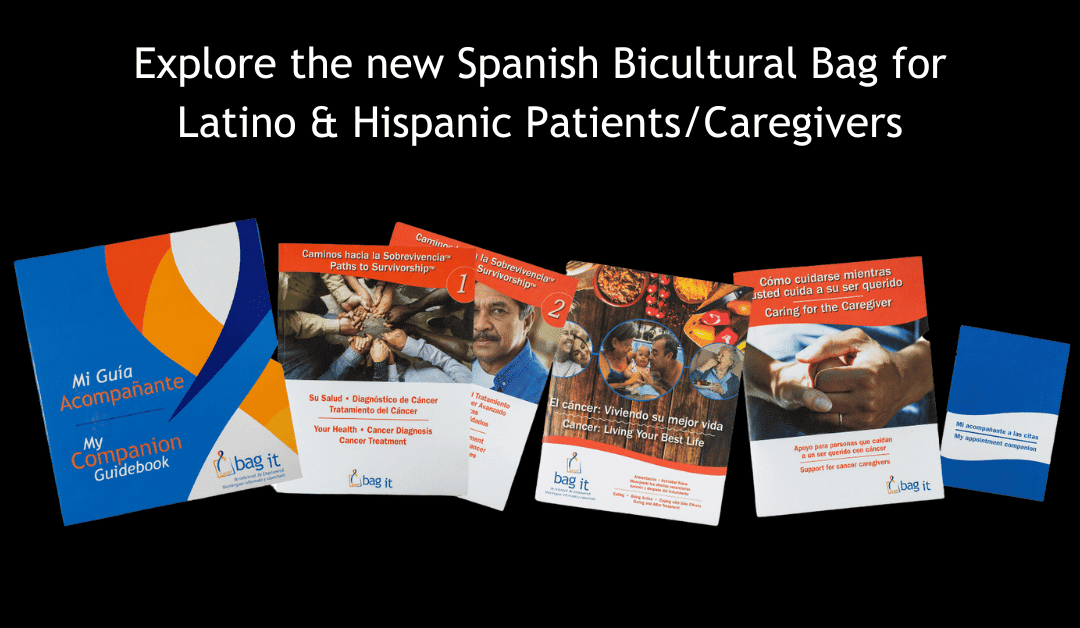
by Bag It Team | Apr 8, 2024 | Educational Articles
Crafted specifically for Latino and Hispanic individuals and their families facing cancer, this new Spanish Bicultural Bag It Bag is the result of two decades of experience and collaboration to enhance content in the original Spanish Bag It Bag.
 Recognizing the profound influence of cultural beliefs and values on the cancer journey, we worked closely with Latino and Hispanic individuals who have firsthand experience with cancer: survivors, caregivers, healthcare providers and others who serve people with cancer. The result? A unique resource available in both Spanish and English, tailored to meet the needs of these communities.
Recognizing the profound influence of cultural beliefs and values on the cancer journey, we worked closely with Latino and Hispanic individuals who have firsthand experience with cancer: survivors, caregivers, healthcare providers and others who serve people with cancer. The result? A unique resource available in both Spanish and English, tailored to meet the needs of these communities.
The Spanish Bicultural Bag prioritizes family involvement, acknowledging the significant role families play in treatment decisions and caregiving. Children’s needs are also addressed, with specific guidance on supporting them through age-appropriate communication and understanding. It delves into how a cancer diagnosis impacts family dynamics, offering support for both patients and those around them.
The Bag underscores the significance of maintaining regular, preventive healthcare and cancer screenings. It discusses common misconceptions about cancer while also providing reliable, factual information about cancer fundamentals to empower individuals as they navigate their unique cancer experience.
 Effective communication is key, so the Bag offers practical tips and strategies for fostering open dialogue among family members and healthcare professionals, including seeking support from social workers, spiritual advisors, and others as individuals and those around them navigate the cancer experience from diagnosis and through every phase of survivorship. This includes the importance of using medical interpreters, where applicable, to ensure individuals that their voices are heard, and they understand the information being relayed to them.
Effective communication is key, so the Bag offers practical tips and strategies for fostering open dialogue among family members and healthcare professionals, including seeking support from social workers, spiritual advisors, and others as individuals and those around them navigate the cancer experience from diagnosis and through every phase of survivorship. This includes the importance of using medical interpreters, where applicable, to ensure individuals that their voices are heard, and they understand the information being relayed to them.
Bag It Cancer’s Spanish Bicultural Bag is a comprehensive resource filled with valuable content and tools to empower individuals and families coping with cancer. Providing organizational tools and reliable information helps patients gain a greater sense of control over their journey. Proactive participation in their care allows for better quality of life and health outcomes.
Read more about this new Spanish Bicultural Bag in Spanish.
Read more about this new Spanish Bicultural Bag in English.
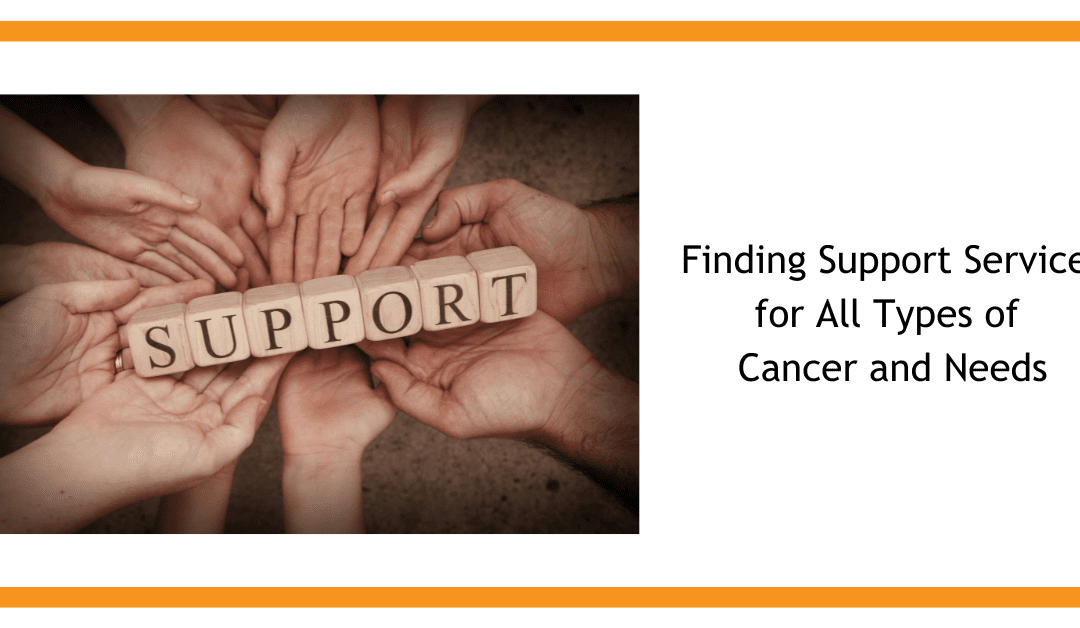
by Bag It Team | Jul 7, 2023 | Educational Articles, Uncategorized
A cancer diagnosis brings changes, challenges and new information needs to your life. Fortunately, there are many services and programs available to support you and your family. 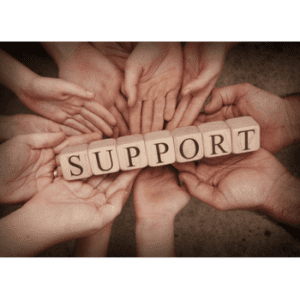
Your healthcare team (especially social workers and navigators) can be a wealth of information about the resources available. You and your caregivers and family members can also seek out the many services available in your community and virtually.
You may benefit from a support group, a social group, a yoga or meditation class, housekeeping services, physical activity programs (e.g. LiveStrong at the YMCA) or places where you can get help paying for medical care or living expenses. There is something for everyone whether you are ready today, tomorrow or in a few years so take advantage of all the wonderful work that organizations are doing t ohelp those diagnosed with cancer and their friends and family. Cast a wide net to find the exact kind of support you need to help you live your best life with a cancer diagnosis.
Are you a survivor or caregiver? We encourage you to seek out support services and programs near you. Are you a healthcare provider? Take a few minutes to learn about the many resources nationally or in your community that can benefit your patients.
Here are some of the types of support and information we provide in our Bag and Cancer Resource Center. (To explore resources on your own, see tips below.)
- Contact info for programs that help with practical needs including financial assistance, transportation and lodging.
- Lists of organizations providing support groups and resources for 14 categories of types of cancer such as blood, breast, brain and lung.
- Resources for clinical trials, legal rights and supportive care.
- Specialized help for populations groups such as American Indians/Alaskan Natives, Latino/Latina, LGBTQI+, Black/African Americans and adolescents to young adults.
Sometimes forgotten is the need for social support. Barbara L. Andersen, PhD at The Ohio State University and Caroline Dorfman, PhD at Duke University wrote The Importance of Social Support for People with Cancer that includes links to other articles such as Six Ways to Support a Friend with Cancer.
Cancer Collaborative of Southern Arizona
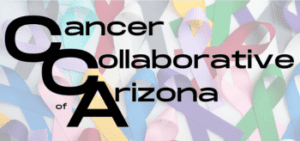 Last month, Bag It Cancer, as part of the Cancer Collaborative of Southern Arizona held an Open House for Healthcare Providers to share with them the numerous services and resources provided by nonprofit organizations in our community to help their patients. The providers who attended were very positive and excited to learn about all the programs available and gathered lots of resources they can share with their patients and their families.
Last month, Bag It Cancer, as part of the Cancer Collaborative of Southern Arizona held an Open House for Healthcare Providers to share with them the numerous services and resources provided by nonprofit organizations in our community to help their patients. The providers who attended were very positive and excited to learn about all the programs available and gathered lots of resources they can share with their patients and their families.
The purpose of the Cancer Collaborative of Arizona (CCA) is to provide a community supporting our common mission – providing resources and support for those dealing with the challenges of a cancer diagnosis.
How to Find Support Services and Programs Near You
- Ask your healthcare team if they offer support services and programs at their facility, or where you can find them locally.
- Check with other cancer medical providers in your area. Many serve all patients, no matter where they receive treatment.
- Contact the national offices of large cancer nonprofits to see if they have a local chapter in your area.
- Contact local nonprofits that offer programs for your type of cancer.
- Check with faith-based organizations, local libraries, community centers, and health departments.
- For seniors, reach out to your local Area Agency on Aging.
- Ask other people with cancer and their caregivers you meet along the way.
Explore Our Vetted Support Services List
There are many resources and organizations offering cancer information and all types of support for people diagnosed with cancer and those around them. But it can be tricky and take a lot of time to sort through them to find sources that are reliable, and have what you are looking for.
The vetted resource lists on the Resources document at right may have everything you need–or it is a good place to start if you prefer to do your own research. We’ve also added phone numbers if you prefer to call and speak to someone.
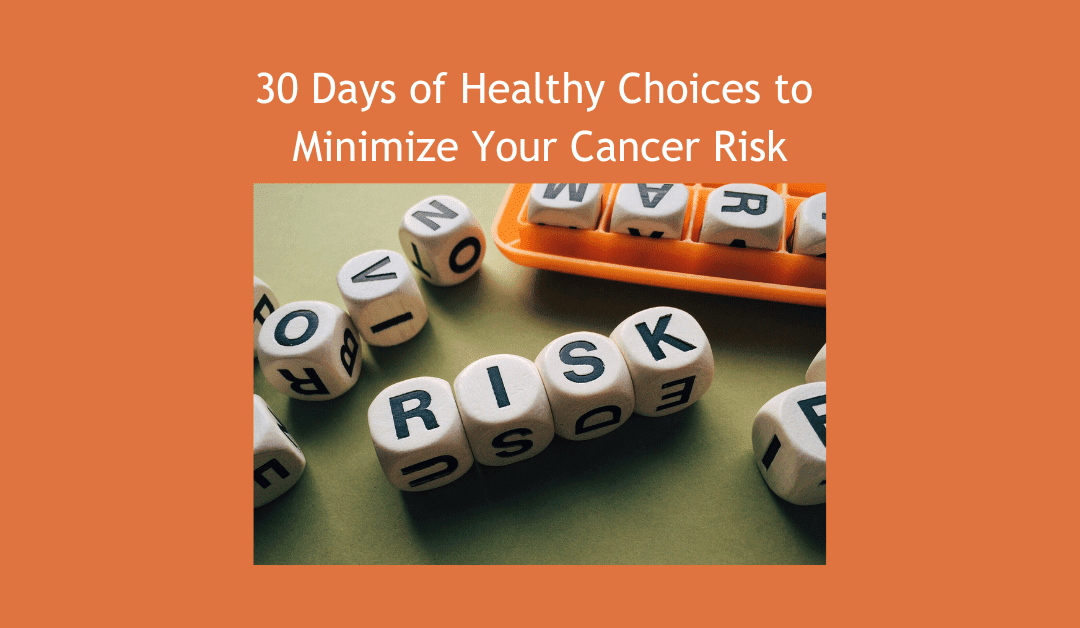
by Bag It Team | Feb 8, 2023 | Educational Articles
Some good news about cancer…
It is estimated that nearly half of cancer deaths worldwide can be prevented, according to recently published medical research. Some cancers are out of our control, but we can make choices about our habits and the way we live to reduce our risk of cancer. Here are some examples:
- Don’t use tobacco
- Protect your skin from the sun
- Eat a plant-based diet
- Limit alcohol
- Maintain a healthy weight and move, move, move
- Get vaccinated against HPV and hepatitis B
- Practice safer sex and avoid risky behaviors
- Reduce your exposure to indoor and outdoor air pollution
Finally, know your family medical history and share it with your doctors. Most people do not have a family history of cancer so getting the cancer screenings your doctors recommend for your particular situation is important. Early detection can lead to better outcomes.
The American Institute for Cancer Research offers a free 30-day checklist to help you eat well, move more and make healthy lifestyle choices to reduce your cancer risk. Find it here along with other cancer prevention resources.
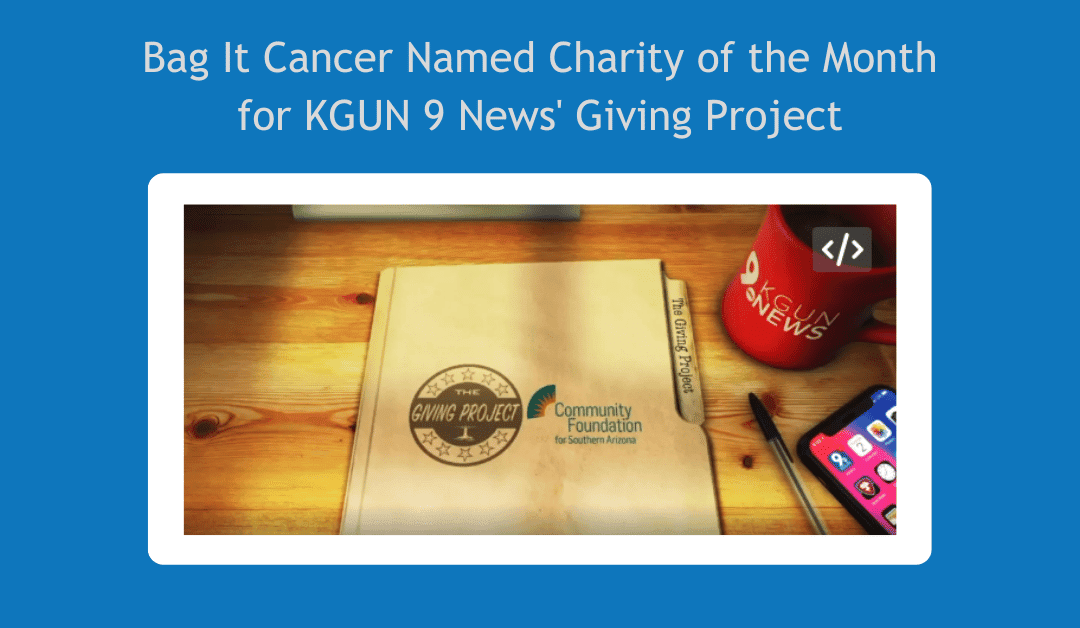
by Bag It Team | Feb 2, 2023 | What's New
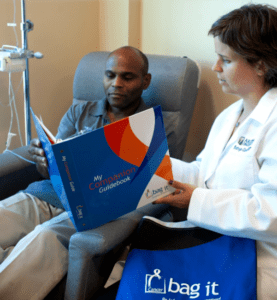 KGUN 9 News Anchor and Reporter Pat Parris Interviews colon cancer survivor Ingrid Jacobs and Bag It Cancer’s Executive Director Mindy Griffith about the impact the resources in the Bag It Bag have had on cancer patients. Every month KGUN 9 features a local nonprofit for our Giving Project and Bag It is their charity for the month of February, 2023.
KGUN 9 News Anchor and Reporter Pat Parris Interviews colon cancer survivor Ingrid Jacobs and Bag It Cancer’s Executive Director Mindy Griffith about the impact the resources in the Bag It Bag have had on cancer patients. Every month KGUN 9 features a local nonprofit for our Giving Project and Bag It is their charity for the month of February, 2023.
We invite you to make a donation to Bag It at KGUN 9’s Giving Project page. Their partners in the Giving Project, the Community Foundation for Southern Arizona, will match the first $500 in donations.
Watch and read this wonderful story about our organization.

 Reconociendo la profunda influencia de las creencias y los valores culturales durante el trayecto del cáncer, trabajamos estrechamente con miembros de la comunidad Latina que han tenido su propia experiencia con el cáncer: los sobrevivientes, los cuidadores, los proveedores de atención médica y otras personas que atienden a personas con cáncer. ¿El resultado? Un recurso único disponible tanto en español como en inglés, diseñado para cumplir con las necesidades de esta comunidad.
Reconociendo la profunda influencia de las creencias y los valores culturales durante el trayecto del cáncer, trabajamos estrechamente con miembros de la comunidad Latina que han tenido su propia experiencia con el cáncer: los sobrevivientes, los cuidadores, los proveedores de atención médica y otras personas que atienden a personas con cáncer. ¿El resultado? Un recurso único disponible tanto en español como en inglés, diseñado para cumplir con las necesidades de esta comunidad. La comunicación efectiva es clave, por lo que el Bolso ofrece consejos y estrategias prácticas para fomentar el diálogo entre familiares y profesionales de la salud, incluida la búsqueda de apoyo de parte de trabajadores sociales, asesores espirituales y otras personas a medida que los individuos y quienes los rodean hacen frente a la experiencia del cáncer desde su punto de diagnóstico hasta el final en cada fase de la sobrevivencia. Esto incluye la importancia de utilizar intérpretes médicos, cuando corresponda, para garantizar que las personas sean escuchadas y comprendan la información que se les comunique.
La comunicación efectiva es clave, por lo que el Bolso ofrece consejos y estrategias prácticas para fomentar el diálogo entre familiares y profesionales de la salud, incluida la búsqueda de apoyo de parte de trabajadores sociales, asesores espirituales y otras personas a medida que los individuos y quienes los rodean hacen frente a la experiencia del cáncer desde su punto de diagnóstico hasta el final en cada fase de la sobrevivencia. Esto incluye la importancia de utilizar intérpretes médicos, cuando corresponda, para garantizar que las personas sean escuchadas y comprendan la información que se les comunique.



 Last month, Bag It Cancer, as part of the Cancer Collaborative of Southern Arizona held an Open House for Healthcare Providers to share with them the numerous services and resources provided by nonprofit organizations in our community to help their patients. The providers who attended were very positive and excited to learn about all the programs available and gathered lots of resources they can share with their patients and their families.
Last month, Bag It Cancer, as part of the Cancer Collaborative of Southern Arizona held an Open House for Healthcare Providers to share with them the numerous services and resources provided by nonprofit organizations in our community to help their patients. The providers who attended were very positive and excited to learn about all the programs available and gathered lots of resources they can share with their patients and their families.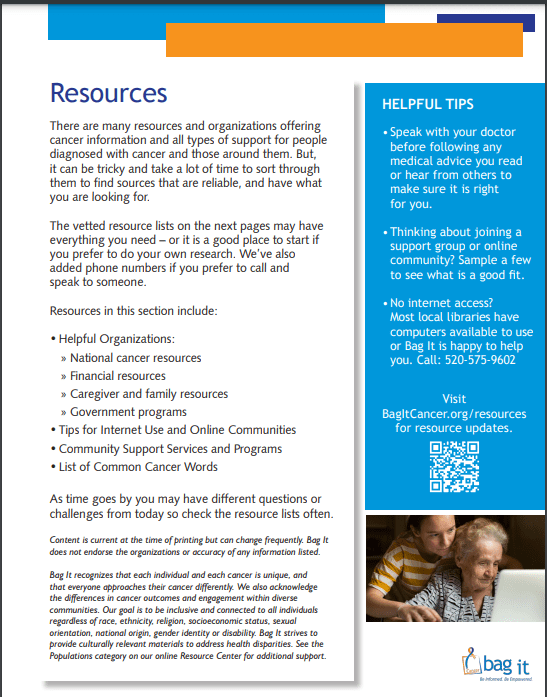

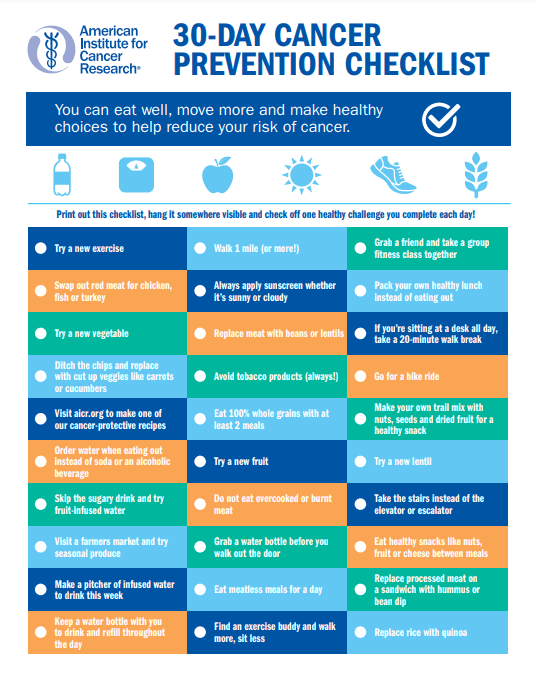

 KGUN 9 News Anchor and Reporter Pat Parris Interviews colon cancer survivor Ingrid Jacobs and Bag It Cancer’s Executive Director Mindy Griffith about the impact the resources in the Bag It Bag have had on cancer patients. Every month KGUN 9 features a local nonprofit for our Giving Project and Bag It is their charity for the month of February, 2023.
KGUN 9 News Anchor and Reporter Pat Parris Interviews colon cancer survivor Ingrid Jacobs and Bag It Cancer’s Executive Director Mindy Griffith about the impact the resources in the Bag It Bag have had on cancer patients. Every month KGUN 9 features a local nonprofit for our Giving Project and Bag It is their charity for the month of February, 2023.
Recent Comments